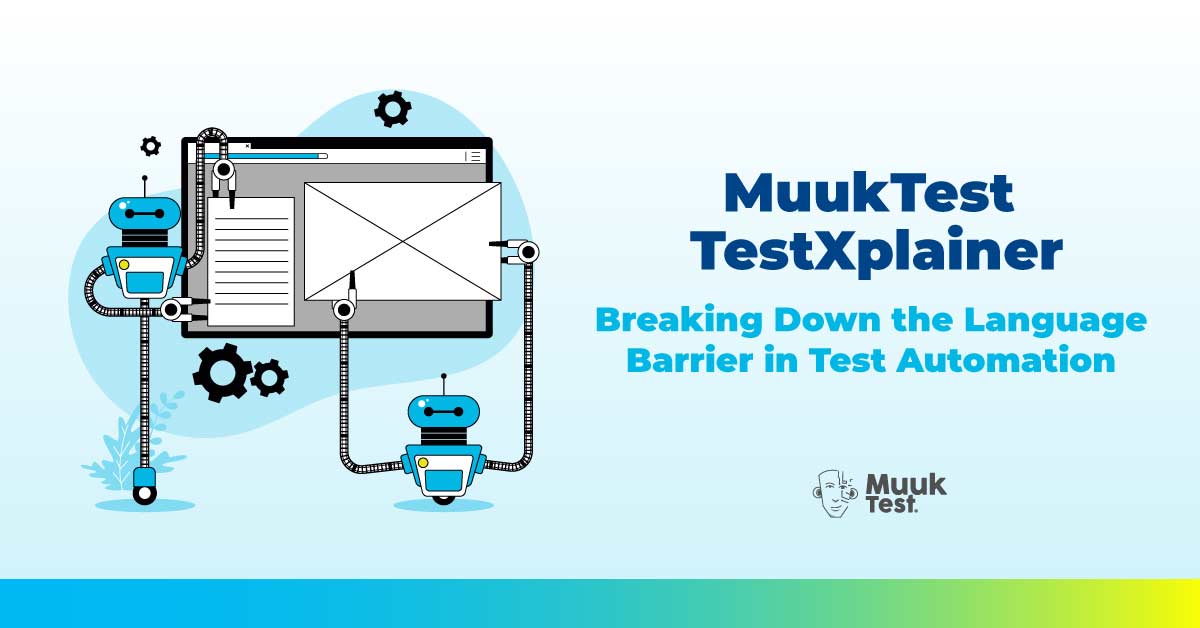Congrats on the new engineering manager role! This engineering manager blog post is your 90-day guide to thriving, not just surviving. We'll cover onboarding, building relationships, and setting expectations. Plus, we'll tackle how to adapt to the changing world of software development and the impact of LLMs. Ready to crush it? Let's go.
According to Apptivo, “A manager is a person who manages a team of employees in an organization. Often, managers get the work done from the employees and make sure the decorum of the organization is maintained. A manager builds a bridge between the employees and the top-level management.”
Engineering leaders specifically work towards planning and coordinating teams and projects, as well as researching new tools and products. Engineering leaders also focus on developing driving strategies, and managing budgets leading to effective and efficient project delivery. When applying for an engineering manager role, candidates often highlight a combination of these reasons, emphasizing their leadership skills, commitment to team success, and the desire to contribute to technical and organizational aspects of a project.
Furthermore, leaders are defined differently by particular companies and people. They’re someone to discuss new issues, strategize on new projects, and compete with colleagues. They lead teams and represent the future of leadership for management teams. The manager’s role also means constantly working closely with team members, other stakeholders, and leadership teams.
Leaders also provide coaching, mentorship, reviews for direct reports, and make important evaluations on tools, strategies, or any new methodology coming in place. Understanding the reviewing process is critical whether you’re a leader wanting to enhance your performance or an employer looking to ensure your managers lead successfully.
There are certain skills managers should bring to the table as well as learn throughout their careers such as:
- Care for their team
- Coach their direct reports and teams
- Care about the development
- Great communicator
- Emotionally resilient
- Fair Treatment
- Encourage innovative ideas
- Empower and celebrate teams
Why Your Team Needs an Engineering Lead
Having what it takes to be a good manager does not happen overnight. It's all about willingness and previous experience as mentioned above. But the big question is what is a good manager?
Great managers have performance skills and can bring out the best overall employee performance evaluation from their team, train the team to attain new heights, help everyone align with company goals, treat people with respect, and help achieve new goals every day. They also need to work well with senior management and other stakeholders. Managers must have excellent leadership skills and be resilient to bring change and go through any changes. It involves skills managers use to persuade others to work together to attain a common objective.
Great managers are the foundation of every successful team. Great managers ensure excellent employee experience from hire to exit. Team outcomes can give you information on how well the team’s manager is doing.
Many employees leave organizations because of inadequate or ill-suited managers' performance. Having the right person for the role is paramount to an organization’s success. They help arrest employee retention and positively boost employee engagement, workforce productivity, staff morale, etc.
Always aim to be a leader of people. Make time for your team and ask them simple questions like “Are you happy?”, “Can I support you?”, “Would you like to discuss something ?” Make it so that your team can be open and candid with you and vice versa. Always try to create a comfortable and positive environment.
So, are you ready to start your first 3-month journey into your managerial position? Let’s start!

Month One: Onboarding as an Engineering Lead
It’s exciting to start your new role as a manager to showcase the great ideas and processes you can bring to the table. The best thing to start with would be to start by understanding your role and what's expected of you.
Getting to Know Your Team
- Schedule one-on-one meetings/coffee catch-ups with each team member.
- Understand teammate’s roles, responsibilities, and individual goals.
- Get all the vital dates in place, for example, mid-year ratings, end of financial year, quarterly meetings, etc.
- Assess the team's dynamics and identify any immediate concerns.
- Remember your leadership could help unveil teammates’ potential.
- Understand the team’s current culture.
- Learn the team's values, norms, and any areas for improvement.
Understanding the Business Landscape
- Grasp the organization's mission, values, goals, and business model.
- How does your role impact cross-functional teams?
- How will your future decisions impact the company?
- How does the engineering team align with overall business objectives?
- Start writing down what could work better if it currently doesn't exist.
Assessing Current Engineering Processes
- Review existing processes, methodologies, and documentation.
- Identify strengths, weaknesses, opportunities, and threats (SWOT analysis).
- Observe ongoing projects and workflows.
- Find out which strategies are deployed by the team deploys.
- If there are no strategies in place, try to work one-on-one with your engineers to develop them.
Building Relationships with Stakeholders
- Identify and communicate with key stakeholders (including developers, product managers, and project managers).
- Understand their expectations and how testing fits into the development lifecycle.
- Work with your team on achieving their goals and career growth.
Setting Up Communication Channels
- Set up regular team meetings and establish effective communication channels.
- Ensure that teammates feel comfortable sharing their ideas and concerns.
Engaging with the Engineering Community
- Is there something about the company you need to learn or understand better?
- If you’re part of a community or speak at conferences, let your team know.
- Support your team in developing their skills.

Month Two: Planning and Strategizing for Success
Evaluating Team Skill Sets
- Evaluate your team’s skillsets and plan a portfolio of your team’s roles.
- Identify training needs and opportunities for skill development.
- Think about how GenerativeAI can support the team.
- Set short-term and long-term goals for the team and individual career growth.
Setting Clear Expectations
- Communicate expectations regarding quality standards, testing methodologies, team collaboration, and engineering best practices.
- Align expectations with the organization's broader goals.
Implementing Changes Effectively
- Introduce changes incrementally to avoid team overwhelm.
- Get feedback on proposed changes and adjust accordingly.
- Ask teammates to suggest any innovative ideas.
Addressing Immediate Engineering Challenges
- Tackle any immediate challenges or roadblocks that hinder testing efficiency.
- Collaborate with the team to find solutions.
- Work with other teams to see how they’ve achieved their goals.
Developing a Solid Engineering Strategy
- Create or refine strategy in alignment with organizational goals.
- Define what it means to be “Done” with a task.
- If the team is not measuring KPIs, start thinking of what KPIs could help showcase how your team performs and provide to higher management.
Defining Your Leadership Style
- Identify and refine your leadership style.
- Determine how you will provide support, guidance, and feedback to your team.

Month Three: Executing and Refining Your Strategy
Implementing Process Improvements
- Introduce changes gradually and transparently
- Solicit feedback on proposed changes and make adjustments as needed.
- Encourage innovation and efficiency, perhaps introduce a team show and tell on a monthly basis, or get the test team to showcase different types of testing they perform, etc. This way everyone in the team knows what is actually happening.
Evaluating Tools and Processes
- Assess the effectiveness of existing tools and engineering processes.
- Identify opportunities for optimization and automation.
- Explore new tools or technologies that could enhance the testing process such as GenerativeAI
- See how many licenses for a tool we use and how many actually use the tool, to see if we can save some budget somewhere
- Understand if everyone uses the tools we have in place or not.
Monitoring Key Metrics
- Define key performance indicators (KPIs) and metrics for the team.
- Implement tools to track and measure testing effectiveness.
- After a few more months you should be able to showcase some results.
Fostering Team Collaboration
- Foster an environment where diverse perspectives are valued.
- Encourage cross-functional collaboration with development and other teams.
- Ensure that team members feel comfortable sharing their thoughts and concerns.
Celebrating Team Successes
- Acknowledge and celebrate achievements, both big and small.
- Reinforce a positive and motivated team culture.
- If you have a platform the whole company uses, post something about your team there and celebrate widely.

Continuous Improvement for Engineering Leaders
Regular Check-ins with Your Team
- It is vital to be in touch with your team members, good managers count with their team members that does not mean micromanaging your teams. Avoid micromanagement
- Conduct regular check-ins with team members to understand their challenges and provide support. Be a supportive manager who the team members feel comfortable to speak to
- Address any evolving issues promptly.
Staying Informed About Industry Trends
- Stay updated on industry trends, best practices, and emerging technologies in testing.
- Just as important as it is for a manager to hear new things in the company and other details, it's as important to provide the vital details to your team members too.
- Encourage team members to participate in training and development opportunities.
Adapting to Change as an Engineering Lead
- Be adaptable and willing to adjust strategies based on feedback and changing project requirements.
- Adjust your management approach based on evolving team dynamics and project requirements.
- Make your team embrace change whether that's from waterfall to agile or from one tool to another, be a resilient team.
Long-Term Planning for Engineering Teams
- Collaborate with stakeholders to set long-term goals for the testing team.
- Align these goals with the organization's strategic objectives.
- Building a bigger team needed be.
- Work with suppliers positively too, so the relationship allows the team to grow.
Training and Development for Engineers
- Implement training and development programs based on individual and team needs.
- Encourage continuous learning and skill development.
Moving Forward as an Engineering Lead
The first 90 days as an engineering leader are critical for establishing your leadership, building relationships, and gaining a deep understanding of your team and the organization. As a leader, you should stay up to date with the state-of-the-art technology and so many communities and conferences these days help with this, not only this but help your team grow their skills by allowing them to attend such events and network with people.
By focusing on understanding the existing landscape, building relationships, formulating a strategy, and gradually implementing improvements, you'll set a strong foundation for effective test management in the long run. Regularly seek feedback, prioritize communication, collaboration and foster a positive team culture, and demonstrate a commitment to continuous improvement. By taking a thoughtful and proactive approach in your first 90 days, you'll not only gain the trust and respect of your team but also set the stage for long-term success as an engineering manager.
It may take some time for you as a manager to feel 100% confident in what you do and perhaps the imposter syndrome will also kick in. This is completely normal and it's completely okay to feel this way. Remember there is no perfect manager, however, there are ways to become a great manager as can be seen in this guide. Be patient and let the positive results appear slowly and steadily.
“Good management is the art of making problems so interesting and their solutions so constructive that everyone wants to get to work and deal with them.” — Paul Hawken.
Frequently Asked Questions
How can I quickly get up to speed with my team and their current projects in the first month? Start by scheduling short, informal meetings with each team member individually. These initial conversations should focus on understanding their roles, current projects, and individual goals. This will help you get a quick overview of the team's dynamics and workload. Simultaneously, review any existing documentation on current projects and processes to gain a broader understanding of the team's work.
What are the most important things to focus on when developing a strategy for my engineering team? Focus on aligning your team's goals with the overall business objectives. Clearly define what "done" means for tasks and projects to ensure everyone is on the same page. If your team isn't already tracking key performance indicators (KPIs), start identifying which metrics will best demonstrate your team's performance and value to upper management. Finally, consider how new technologies, like AI-powered tools, can support and enhance your team's work.
How can I effectively introduce changes to my team's processes without causing disruption or resistance? Introduce changes incrementally and transparently. Clearly communicate the rationale behind the changes and how they will benefit the team and the organization. Actively solicit feedback from your team throughout the process and be willing to adjust your approach based on their input. Small, iterative changes are often easier to adopt than large, sweeping overhauls.
How do I balance supporting my team's individual growth with achieving the team's overall goals? Regular one-on-one meetings are crucial for understanding your team members' individual aspirations and challenges. During these meetings, discuss their career goals and identify opportunities for skill development and training. Connect these individual goals with the team's objectives, demonstrating how their contributions directly impact the overall success. This helps create a sense of shared purpose and motivates individual growth within the context of the team's success.
What are some ways to stay current with industry trends and ensure my team's skills remain relevant? Regularly engage with industry publications, blogs, and online communities. Attend conferences and workshops to learn about new technologies and best practices. Encourage your team to do the same and consider implementing regular knowledge-sharing sessions within the team. This fosters a culture of continuous learning and helps everyone stay ahead of the curve.












